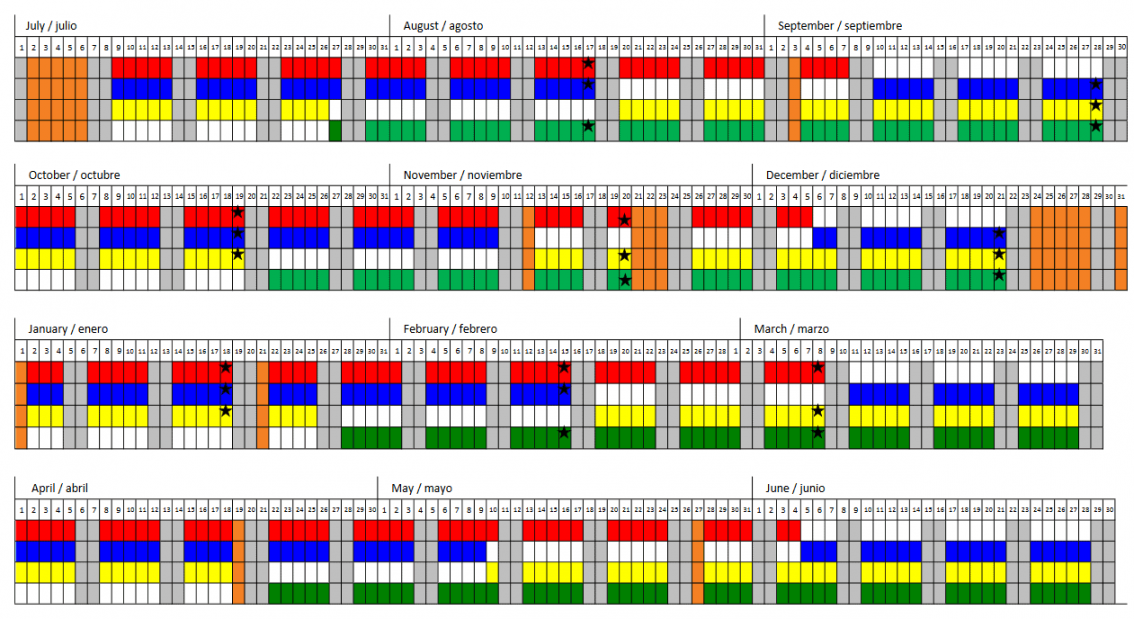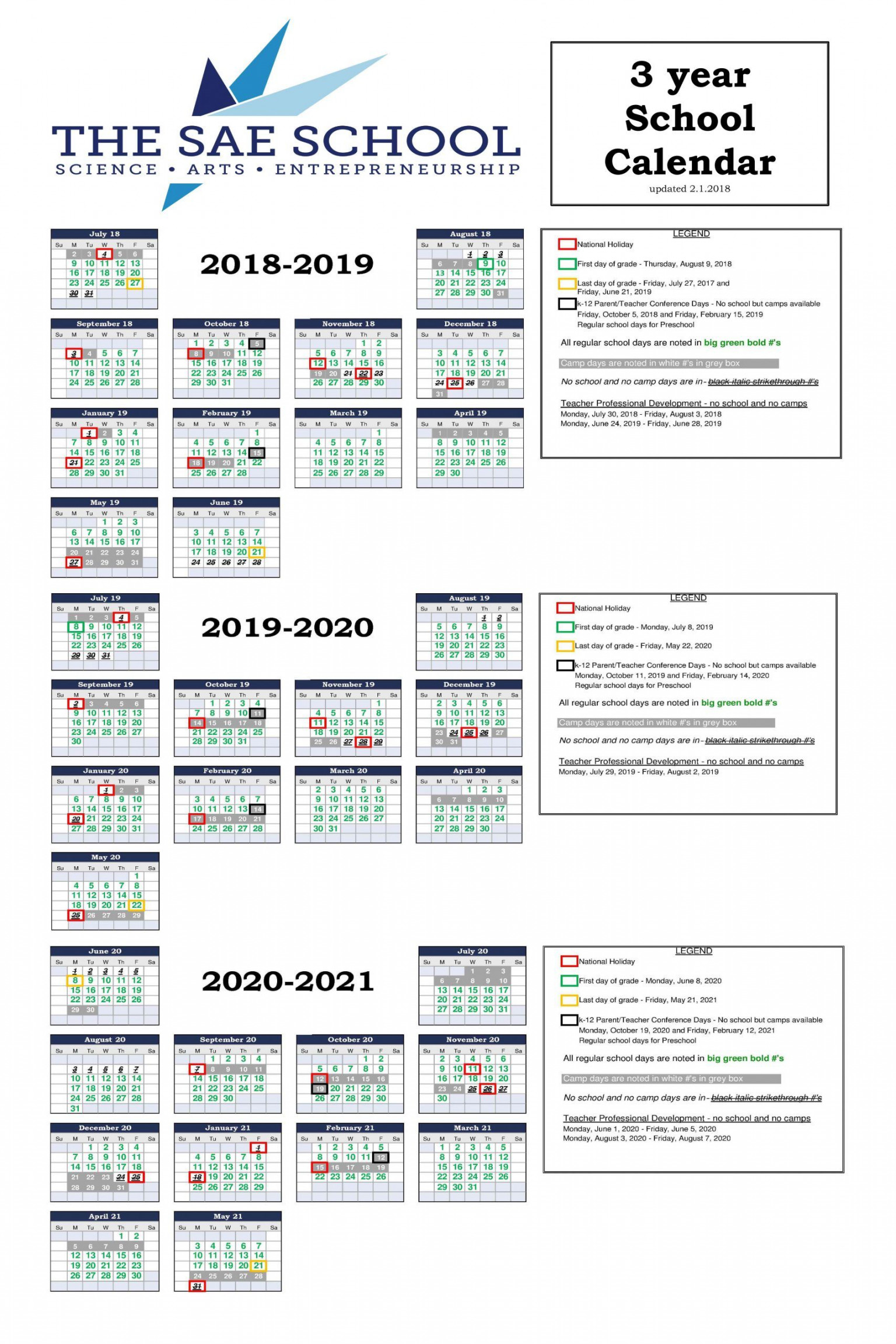Pros, cons of year-round school
Year-round schools–the single-track modified calendar, also known as a balanced calendar, and the multi-track calendar–both involve moving 180 school days around so that there are multiple short breaks instead of a long summer break.

Single-track calendars have all students following the same schedule. With a multiple-track calendar, usually created to alleviate school over-crowding, some students are on campus while others are on break.
Balanced calendars often take the form of 45 school days followed by 15 days of break, or 60 school days followed by 20 days of break. Other modified calendars with shorter intersessions exist in Mississippi and South Carolina.

Federal data shows year-round school has been fading in popularity over the past decade or so. In the 2007-2008 school year, 4.4 percent of schools were on a year-round cycle. By the 2017-2018 school year, that figure had dropped to 2.5 percent. However, since the pandemic, there have been signs of renewed interest in single-track year-round calendars, at least in the Southeast.
Does it work? If it means saving money by avoiding having to add buildings, then it is possible for a school that normally serves 750 students to serve 1,000 when going to a year-round, multiple-track schedule, because the schedule has different students taking breaks at different times.
But if “works” means an improvement in student achievement, there is insufficient data to answer that question, especially for single-track calendars.
Depending on the type of year-round calendar, changes can affect sports, particularly practice schedules and game schedules. It can also be a problem if members of the same team are on different tracks.
Finally, some school districts are hoping for a reduction in teacher turnover by having more frequent breaks. There is some evidence that modified year-round school does a better job of giving teachers a chance to recharge and come back to the classroom after each break feeling refreshed.
Daniel H. Robinson is associate dean of research, College of Education, University of Texas at Arlington. Nicole Miller is associate professor of elementary and middle school education, Mississippi State University.